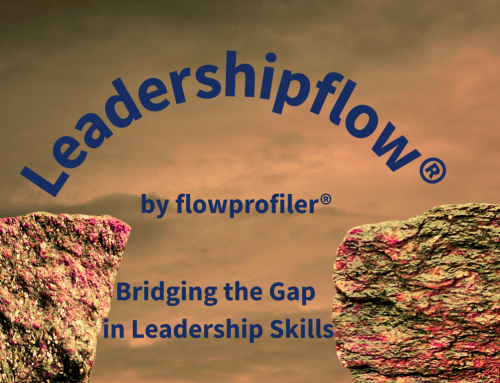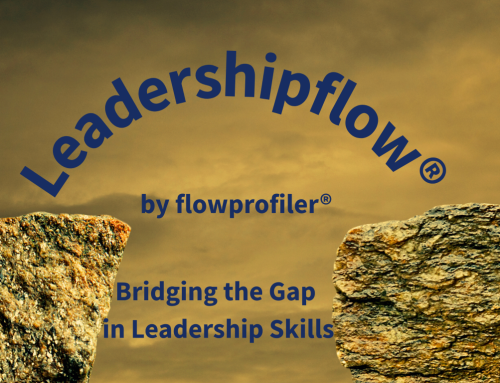Mindset Matters: why mindset is the foundation of leadership excellence
Leadership excellence is not a fixed trait. In modern workplaces, mindset matters more than many leaders realise. A leader’s mindset shapes how they respond to pressure, how resilient they are during setbacks, and the culture they create for their teams. In our Leadershipflow® Pathways, we explore four distinct mindsets often seen in organisational life: the victim mindset, fixed mindset, growth mindset, and the most empowering of all, the challenge mindset.
Victim Mindset
A victim mindset is characterised by helpless thinking, blame, and the belief that external forces drive every outcome. People who fall into this mindset often feel powerless to influence results and operate with a “Why is this happening to me?” narrative. Martin Seligman’s research on learned helplessness shows how repeated negative experiences can lead people to stop trying, even when change is possible (Seligman, 1975). Over time, this erodes a sense of agency, the belief that effort affects outcomes (Bandura, 1977).
When leaders adopt this mindset, accountability disappears, and progress stalls. They focus on barriers rather than solutions, make excuses, and expect failure as inevitable. This is the polar opposite of leadership excellence. Great leaders break this pattern by reclaiming ownership and shifting their internal question from “Why me?” to “What can I do next?”. The turning point is a decision, refusing to remain helpless and choosing to act.
Fixed mindset
A fixed Mindset also limits effectiveness, but for different reasons. Carol Dweck (2006) describes the fixed mindset as the belief that intelligence, talent, or capability is static, that people either “have it or they don’t”. Leaders with this outlook avoid risks, resist feedback, and fear failure because it threatens their self-image.
In practice, fixed-mindset leaders:
-
label people as “naturally talented” or “hopeless”
-
avoid challenges that might expose limitations
-
invest less in learning, training, or skill development
-
unintentionally create stagnant, fearful team cultures
When leaders believe people cannot change, innovation slows, and psychological safety collapses. Teams play small because mistakes feel dangerous. Breaking out of this mindset requires embracing the belief that abilities can be developed. Even a simple reframing, changing “I’m not good at this” to “I’m not good at this yet”, from “It wouldn’t work in our business” to “We don’t know until we try.” supports a more constructive outlook.
Growth Mindset
The growth mindset is the opposite of the fixed mindset. Rooted in Dweck’s (2006) work, it is defined by the belief that skills and abilities can be developed through effort, learning, strategy, and feedback. Leaders with a growth mindset embrace challenges, stay curious, and persist through setbacks. Research shows they are more resilient and more likely to maintain motivation after failure (Yeager & Dweck, 2012).
Growth-oriented leaders tend to:
-
coach instead of judge
-
encourage development and experimentation
-
learn from mistakes and role-model humility
-
focus on progress, not perfection
This mindset unlocks greater innovation, engagement, and adaptability at team level. When mindset matters to a leader, it creates a culture where people feel safe to stretch, learn, and try again. Such environments are more resilient and optimistic, particularly in times of change (Seligman, 1990).
Challenge Mindset
At the top of the mindset ladder is the challenge mindset. This mindset builds on growth thinking and moves beyond coping to thriving. Individuals with a challenge mindset actively embrace pressure, adversity, and high expectations as catalysts for improvement. Research shows that when people view stress as a challenge rather than a threat, they demonstrate greater focus, persistence, and more adaptive physiological responses (Crum et al., 2013).
Challenge-mindset leaders:
-
interpret setbacks as fuel for innovation
-
maintain optimism and accountability under pressure
-
rally others with a “we’ve got this” mentality
-
view problems as puzzles to solve, not dangers to avoid
This mindset aligns with Seligman’s (2011) concept of optimistic explanatory style, seeing adversity as temporary and specific, not permanent or personal. Over time, this develops exceptional resilience and builds what experts call psychological capital: confidence, hope, and perseverance shared across a team.
Mindset as a Journey of Excellence
The journey from victim and fixed to growth and challenge is not linear or universal, but it is developmental. Each shift requires effort, accountability, and self-reflection. The common thread is ownership. Leaders move from:
-
“I can’t change this” (victim)
-
to “I can improve this” (growth)
-
to “I am responsible for finding the solution” (challenge)
These beliefs are hallmarks of high-performance leadership and form the foundation of a proactive, goal-driven culture. They also lead to authenticity, confidence, fulfilment, and stronger organisational outcomes.
At flowprofiler®, we describe this formula as:
awareness + action + accountability = personal excellence
Why Mindset Matters to Leadershipflow®
Mindset is not a label, it is a starting point. Leaders can strengthen their mindset with the right insights, tools, and support. The flowprofiler® family of assessments helps leaders build self-awareness across emotional intelligence, resilience, and motivation, while Leadershipflow® Pathways turn that awareness into behavioural change.
High-impact leadership is not an accident. It is a choice. made through daily decisions to learn, adapt, and persevere. Mindset matters, and the journey from helpless to thriving is one every leader can take.
If you are ready to understand your mindset profile, develop new responses, and unlock your potential, start your journey with Leadershipflow® and flowprofiler®. Your next breakthrough is a mindset shift away. Find us at hello@flowprofiler.com
References (APA 7th)
Bandura, A. (1977). Self-efficacy: Toward a unifying theory of behavioural change. Psychological Review, 84(2), 191–215.
Crum, A. J., Salovey, P., & Achor, S. (2013). Rethinking stress: The role of mindsets in determining the stress response. Journal of Personality and Social Psychology, 104(4), 716–733.
Dweck, C. S. (2006). Mindset: The new psychology of success. Random House.
Seligman, M. E. P. (1975). Helplessness: On depression, development, and death. W. H. Freeman.
Seligman, M. E. P. (1990). Learned optimism. Knopf.
Seligman, M. E. P. (2011). Flourish. Free Press.
Yeager, D., & Dweck, C. (2012). Mindsets that promote resilience: When students believe that personal characteristics can be developed. Educational Psychologist, 47(4), 302–314.



